Participating Fellows
2024 Water Scholar Program
Jeantel Cheramy

From: Haiti
Mentor: Dr. Joe Bisesi
Department: Environmental and Global Health (College of Public Health and Health Professions)
Jeantel Cheramy holds a bachelor’s degree in Environmental Engineering from Istanbul Technical University, Turkey, and a Master’s in Sustainable Development Practice from the University of Florida. During his master’s, Jeantel worked closely with Dr. Joseph Bisesi in his lab at the Department of Environmental and Global Health focusing on human health toxicology and ecotoxicology to assess heavy metals removal from a point- of- use water filter. He also had the opportunity to work with Dr. Samuel Smidt in his Land and Water Lab related to Soil and Water Institutes at UF in developing a low cost modified bio-sand water filter to provide clean drinking water to vulnerable populations and mitigate environmental health risks. Now, Jeantel plans to pursue his doctoral studies focusing on analyzing contaminants in wastewater, studying their effects on aquatic organisms, and exploring wastewater reuse for aquaculture. Jeantel’s passion lies in finding sustainable solutions to environmental challenges, utilizing his background in both engineering and sustainable development to drive positive change.
Chamoda Dissanayake
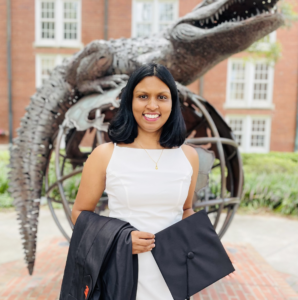
From: Sri Lanka
Mentor: Dr. AJ Reisinger and Dr. Basil Iannone
Department: School of Forest, Fisheries and Geomatics Sciences (College of Agricultural and Life Sciences)
Specialization: Water quality, nutrient dynamics, Urban freshwater ecosystems
Chamoda Dissanayake holds a bachelor’s degree in aquatic resources management from the University of Sri Jayewardenepura, Sri Lanka. She earned her master’s degree in Forest Resources and Conservation, with a minor in Soil and Water Science, from the University of Florida. Her previous research focused on the effects of urbanization on water quality in freshwater ecosystems. For her master’s thesis, she investigated the use of plants as a Best Management Practice (BMP) for nutrient removal in stormwater ponds, funded by the Florida Department of Environmental Protection. Her research interests include water quality, nutrient dynamics, freshwater ecology, and urban landscape management practices to address impacts of urbanization on freshwater ecosystems.
Forrest East

From: Texas, USA
Mentor: Dr. Kotryna Klizentyte
Department: School of Forest, Fisheries and Geomatics Sciences (College of Agricultural and Life Sciences)
Specialization: Decision-making tools, spatial modeling, economics/policy
Forrest East holds a bachelor’s from Colorado State University and master’s from New Mexico State University (NMSU) in Fish, Wildlife, and Conservation Ecology, as well as a minor in applied statistics from NMSU and a bachelor’s in Genetics from the University of Georgia. He has worked in several areas across the United States including the Midwest, the Southwest, the Southeast, and the Front Range of the Rocky Mountains. He has extensive experience in wildlife-habitat relationships, working with both the International Crane Foundation and the Smithsonian Conservation Biology Institute. After graduating from NMSU, he found employment at the Natural Resources Institute at Texas A&M University as a modeler for natural systems. He has worked on a range of species including whooping cranes, ocelots, key deer, and freshwater mussels. His interests include dynamic systems modelling, Bayesian statistics, and structured decision-making tools applied to natural systems. He hopes to use his skills to create practical problem-solving techniques for real world situations.
Ashley Hennessey
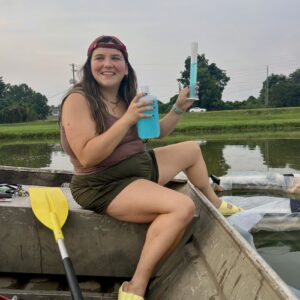
From: Florida, USA
Mentor: Dr. AJ Reisinger
Department: Soil, Water, and Ecosystem Sciences
Ashley Hennessey holds a Bachelor’s degree in Biological Sciences from Florida State University, and a Master’s in Fisheries, Aquaculture, and Aquatic Sciences from Auburn University. Her graduate research focused on developing sustainable management strategies for harmful algal blooms, earning her the prestigious David Partridge Memorial Award in recognition of her contributions to conservation. Currently, her research employs a combination of laboratory and field methodologies to investigate the ecological impacts of recycled water on wetland and stream microbial communities, with a particular emphasis on the potential development of anti-microbial resistance in these systems.
Oluwasegun Olubisi
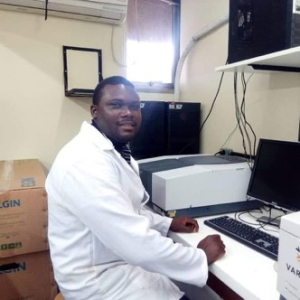
From: Nigeria
Mentor: Dr. Mary Lusk and Dr. Davie Kadyampakeni
Department: School of Natural Resources and Environment (College of Agricultural and Life Sciences)
Specialization: Sustainability, water quality, nutrient cycling, soil quality; agricultural reuse
Oluwasegun Olubisi holds both a bachelor’s in agriculture and a Master of Science in Soil Science from Obafemi Awolowo University, Ile-Ife, Nigeria. As a Junior Research Fellow at the Institute of Agricultural Research and Training, Obafemi Awolowo University, his research focuses on soil fertility and soil health, particularly the application of synthetic fertilizers, which have undeniably played a pivotal role in meeting global food demand. However, the ongoing and excessive use of these fertilizers raises concerns about their environmental impact. To address this issue, Oluwasegun is exploring a novel approach by intercalating urea fertilizers with biochar to study the nitrogen release rate in soil, agronomic efficiency, and effects on humified organic matter. Additionally, as a Water Scholars Graduate Fellow with the University of Florida Water Institute, he will be working with Dr. Mary Lusk on the beneficial reuse of wastewater for agricultural production, exploring its potential for agricultural irrigation.
Tunde Samuel Oluwatuyi

From: Nigeria
Mentor: Dr. Davie Kadyampakeni and Dr. Mary Lusk
Department: Soil, Water and Ecosystem Science (College of Agricultural and Life Sciences)
Specialization: Sustainability, water quality, nutrient cycling, soil quality
Tunde Samuel Oluwatuyi holds a bachelor’s degree in Agronomy from the University of Ilorin, Kwara, Nigeria, and a master’s degree in Soil Resources Management from the University of Ibadan, Oyo, Nigeria, where he focused on soil physics and soil-water-plant relations. He graduated as the top student in the Department of Soil Resources Management in 2023, achieving a remarkable grade of 95.7%. Samuel’s research included studying the impact of biochar application on soil health. He also worked as a research assistant at the University of Ibadan, gaining hands-on experience in various soil and water-based research projects, including the use of vetiver grass to control soil erosion. His research interests encompass soil and water conservation, soil health, soil carbon and climate change, and sustainable agriculture.
Fabiola Y. Rodríguez Rodríguez

From: Puerto Rico
Mentor: Dr. Katherine Y Deliz Quinones
Department: Environmental Engineering Sciences (Herbert Wertheim College of Engineering)
Specialization: Chemical engineering, catalysis reactions, water treatment
Fabiola Y. Rodríguez Rodríguez graduated with a BS in Chemical Engineering from the University of Puerto Rico in Mayagüez. Throughout her undergraduate studies she engaged in various research and professional activities centered around sustainable chemistry and the energy-water-food nexus to produce high-value compounds from agricultural waste. For her doctoral work, Fabiola intends to leverage her expertise and products derived from agricultural waste to manufacture sustainable catalysts capable of breaking down PFAS and other organic contaminants in wastewater. Her research aims to transform wastewater treatment and address challenges with emerging pollutants, treatment upscale, circularity, and economics of water reuse.
Nishika Samarakoon
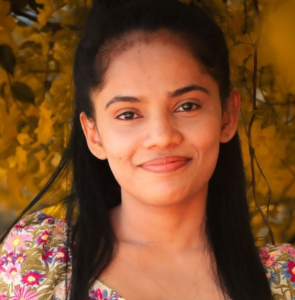
From: Sri Lanka
Mentor: Dr. Andrew Zimmerman
Department: Geological Sciences (College of Liberal Arts and Sciences)
Nishika Samarakoon received her PhD from the Department of Geology in University of Peradeniya, a leading state university in Sri Lanka. Her dissertation examined the variation of soil carbon in tropical montane forests in Sri Lanka. She will now apply her geochemical expertise to the study of how biochar can be used to treat reclaimed water for reuse applications.
Amanda Sills
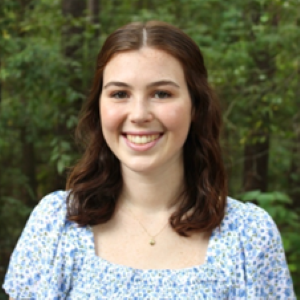
From: Florida, USA
Mentor: Dr. Katherine Y. Deliz Quinones
Department: Environmental Engineering Sciences (Herbert Wertheim College of Engineering)
Specialization: Sustainability, environmental sciences, economics, GIS
Amanda Sills earned her BA in Sustainability Studies from the University of Florida, specializing in Environmental Science. During her undergraduate studies, she engaged in interdisciplinary research, focusing on environmental monitoring of PFAS and investigating the impact of land use on PFAS transport and aquatic toxicity. For her doctoral studies, Amanda plans to utilize her newly gained expertise to assess the toxicological impacts of wastewater discharge in FL coasts. Her research will reveal the effect of PFAS mixtures on gene expression at different trophic levels and will be used to develop provisional standards for protection of aquatic species. Additionally, she would like to assess the environmental economic implications of PFAS pollution.

